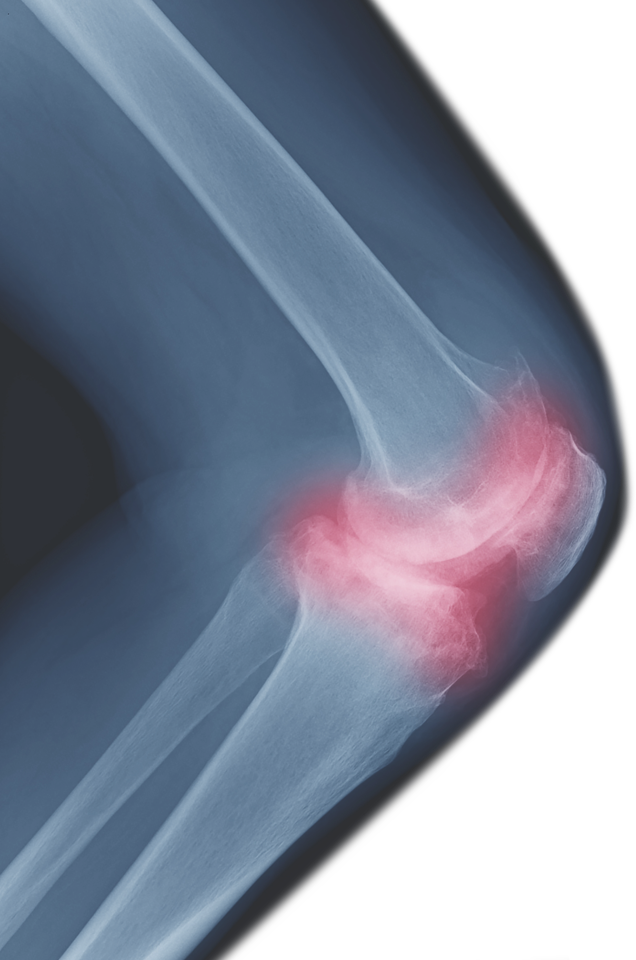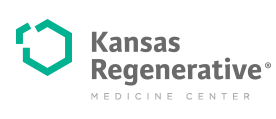Upcoming Webinars
Register NowWhy Your Own Stem Cells?
Safer and more effective, your own stem cells accelerate your body's healing.
Our in-house science team has researched the many types of stem cells available today. Together with our clinical teams, we believe that using your own stem cells are the safest, most effective treatment choice for your body and your health.
How Your Stem Cells Work
Adult stem cells are “blank,” or undifferentiated, cells that your body creates to replace dying cells or heal damaged tissue. Once collected in a nearly painless procedure from naturally occurring fatty deposits or bone marrow in your body, these plentiful stem cells can be reintroduced into specific areas of the body to regenerate healthy cells and accelerate your body’s natural ability to heal itself.
At KRMC, we never use embryonic stem cells. We use your own naturally occurring Mesenchymal 'adult' stem cells. These remarkable cells are able to differentiate into a variety of cell types, including bone, cartilage, muscle and fat cells, that can promote healing and reduce pain and inflammation. Learn about the Kansas Regenerative Medicine Center process.
Realizing the potential to accelerate healing
In a single 2-4 hour session, our physicians can collect, concentrate and deploy your own stem cells to affected areas in your body. We use a nearly pain-free collection of stem cells from your own natural fatty deposits or bone marrow, depending on your specific condition and overall health.
Adult adipose stem cells from naturally occurring fatty deposits are abundant in quantities. The abundance of these stem cells allows for multiple treatments on the same day. Our procedure requires only local anesthesia and, in most cases, recovery is almost immediate.
As we learn more about the workings of stem cells and increase our ability to apply medical breakthroughs, we are realizing the remarkable therapeutic potential stem cells can have to help the body heal itself. Adult stem cells have been used for a variety of medical treatments to repair and regenerate acute and chronically damaged tissues — from joint and muscle injuries to cardiac and pulmonary conditions to autoimmune disorders.
Types of Stem Cells
Adult Stem Cells
In regenerative medicine today, adult stem cells hold the most promise for personal cell-based therapies. There are two main types of stem cells, adult and embryonic, which require unique means of collection and deployment.
Early research in the field was often associated with the controversial use of embryonic stem cells. Today, the cutting-edge of the science focuses on Mesenchymal stem cells found in an adult’s blood, bone marrow and fatty deposits. At KRMC we never use embryonic stem cells.
The quality of stem cells deployed appear to be related directly to the clinical success and favorable outcomes of a procedure. Once your own derived stem cells are deployed into an affected area of a patient body, the cells have the potential to:
- Repair human tissue by influencing healing and forming new cells of mesenchymal origin, such as cartilage, bone, ligaments, tendons, nerve, fat, muscle, blood vessels, and certain internal organs
- Form cartilage and bone, which makes them potentially highly effective in the treatment of degenerative orthopedic conditions
- Form new blood vessels and other tissues, which makes them suitable for mitigating a large number of traumatic and degenerative conditions
Adipose Stem Cells
Personal cell therapy around the world has illuminated the benefits of adipose (fat) derived stem cells (ADSCs). These cells are easy to obtain and are generally robust. Adipose fat is an abundant and reliable source of stem cells. The best quality adipose cells are derived from the enzymatic digestion of liposuctioned fat which can be performed in a nearly painless, outpatient procedure.
- Autologous, adipose stem cells from a person’s own fat are easy to collect using only local anesthesia
- These stem cells are abundant in quantities up to 2,500 times those seen in bone marrow
- Cell viability and age: Conceivably, a generally healthy 60 year-old patient has only required their ADSCs to "work" maybe 9 or 10 times in their life. As a single stem cell is capable of producing 1031 stem cells, only having to work 9 or 10 times renders this cell pretty young and healthy, hence why ADSCs show strong viability numbers in patients ranging from 10 to 90 years old.
- The abundance of these naturally occurring stem cells allows for multiple treatments on the same day
Bone Marrow Stem Cells
Mesenchymal stem cells derived from bone marrow offer the same benefits as Adipose derived stem cells:
- Autologous stem cells from a person's own bone marrow are easy to collect using only local anesthesia
- May only be used for orthopedic conditions
- Allows for 1-2 joint treatments on the same day
- Cell viability and age: Bone marrow stem cells show strong viability numbers in patients ranging from 10 - 60 years old. A patient's overall health and age are key factors in determining candidacy for this therapy.
Foreign Stem Cell Types
Embryonic Stem Cells
At KRMC, we never use embryonic stem cells. Embryonic (ES) Stem cells are isolated from the inner cell mass of blastocysts of preimplantation-stage embryos. These cells require specific signals to differentiate to the desired cell type. If simply injected directly, they will differentiate into many different types of cells, resulting in a tumor derived from this abnormal pluripotent cell development (a teratoma). The directed differentiation of ES cells and avoidance of transplant rejection are just two of the hurdles that ES cell researchers still face. In addition, Embryonic stem cells are associated with ethical considerations and limitations.
"After Birth" Derived Stem Cell Products
KRMC does not use umbilical cord blood stem cells, amniotic tissue, wharton's jelly or any other placental-derived products. These allogeneic (not your own) "stem cell" products are being heavily marketed by some chiropractors and physicians alike - a host of products; live cells, radiated dead cells, frozen cells, and in different quantities for immediate deployment. These cells are billed as young, healthy, vibrant cells having just come from a new birth. Stem cells in a bottle may seem attractive to some patients and doctors, however, many questions remain about using someone else's cells containing foreign DNA. From a scientific and physician's point of view, the proof that allogeneic cells are equal or superior to one's own cells is certainly lacking and has kept us, for now, working only with autologous (your own) stem cells.
The safety issue remains to be supported by objective research but an absence of information does not imply that foreign cells are better than your own. Generally, the burden of safety proof must lie on the foreign cells since they are the non-self being introduced into one's body. When foreign cells are introduced in the stem state, they have few immune markers and will generally have little to no immune reaction for that reason. They get a "free pass" as "safe" in a lot of cases. But, are stem cells different just because the effect is not detected the first weeks after treatment? Has anyone looked at what happens down the road when those cells differentiate into the cells that came from the donor? Do we know the long-term consequences of a person receiving a significant load of foreign DNA through multiple stem cell treatments over time with allogeneic cells? Immune reactions to receiving someone else's DNA are well documented and reports show that foreign cell transplants are not as safe as suggested (Jacobsohn, Acute Graft Versus Host Disease, Orphanet Journal of Rare Diseases, 2007). The cells might be safe initially, but as they grow and differentiate into functional tissue, a patient could have a serious problem and end up with acute graft versus host disease. This has also been documented with recent reports on matched bone marrow transplants {Holmqvist, Chen, Wu, Assessment of Late Mortality Risk After Allogeneic Blood or Marrow Transplantation in Children, JAMA Oncology, July 26, 2018).
KRMC also has real concerns about transmission of disease. As with any blood transfusion, allogeneic cells are a possible source of just that. A myriad of agents can potentially be transmitted including bacteria, viruses, and parasites. Historically, most tissue banks only screen for 10% of communicable diseases. It wasn't until the year of 1985 when they started screening for HIV. What percentage of HIV patients received it from a blood transfusion? It wasn't anyone's fault, it was simply unknown. What disease are they not screening for today that will be deadly in the future? Are there other viruses that are responsible for human disease that could come from another person? Of course the answer is yes. Only cells that come from your own body that undergo sterile isolation or processing have no risk of communicable disease transmission.
Also, what prions do these tissue banks screen for? Prions cannot be destroyed using current techniques for inactivating pathogens in the human blood supply. These immune and infectious risks are generally low enough that a risk-benefit analysis generally supports the use of allogeneic cells for certain cases. But the risk exists.
Your own stem cells provide you with the safest personal cell therapy option we know of for now. Using sterile technique, you cannot become infected with cells that have already been in your own body and there certainly is no chance of rejection.
There could be times where allogeneic sources are vital, such as end of life scenarios, or times when a patient is too frail for surgery and requires cell therapy. But while off the shelf stem cells might be appealing for now for all general cases, we advise patients to please take caution before considering these types of treatments.
Click below for further related articles & news:
Advancing Access and Quality Care
At KRMC, we are at the forefront of stem cell technology and research with a focus on advancing access and quality care in the area of adult stem cell regenerative medicine. It is our mission to help people suffering from a variety of inflammatory and degenerative conditions. Our research and experience, as well as an ever increasing list of unbiased, peer reviewed medical journals and articles, continue to indicate that regenerative medicine is a good alternative to traditional treatments for many conditions.
A rapidly evolving field
Many reputable international centers have been using personal cell therapy to treat a variety of medical conditions, for decades. The use of adult stem cells is currently not FDA approved for the treatment of any specific disease in the United States at this time and their use is therefore investigational. That is why Kansas Regenerative Medicine Center is participating in clinical research studies - to gather evidence about the safety and efficacy of regenerative medicine, and contribute to the scientific knowledge about this type of personal cell therapy. We are on our way to helping more and more people avoid invasive surgery and/or simply having a better quality of life - when they have been given no alternatives, other than pain medications or simply having to accept it, as is. With personal stem cell therapy, we finally have hope.
Our procedures are considered a same-day surgical procedure. Our stem cell treatments are part of an ongoing study coordinated by the International Cell Surgical Society. All investigational procedure protocols, reviewed by the Institutional Review Board of the ICSS, are strictly adhered to, and patient data is collected and reported back to study sponsors as part of this ongoing research.
“In Britain, like most of the developed world, stem-cell research is regarded as a great opportunity. America will be left behind if it doesn't change policy.”
-Stephen HawkingA Regenerative Medicine Center
We are proud to offer a comprehensive regenerative medicine center right here in the Midwest. Using cells harvested from your own body: Adipose (fat), bone marrow and platelet-rich plasma are the sources of these healing cells.
Combine the highly skilled MD's and DO's in the region, that have been performing stem cell therapy for over 5 years, our state of the art facility with ultrasound and fluoroscope to guide injections with the benefits of personal cell therapy - you get Kansas Regenerative Medicine Center.
Your Body. Your Stem Cells.
Conditions & Treatments
Knees Shoulders Feet and Ankles Neurology Elbows Autoimmune Disease Cardiac and Pulmonary Back and Neck Hips Hands and Wrists PRP Peripheral NeuropathyArticles and News
Are You a Candidate?
Our research-based treatments use your own stem cells to accelerate your healing — without surgery.
Request an Introductory Patient Package
Receive an introductory patient package by email.

Register for An Upcoming Webinar
Use Your Own Cells to Treat Arthritis, Joint Injuries & Spine Pain
A stem cell discussion followed by Q & A.
Join Us!
for an upcoming webinar.





